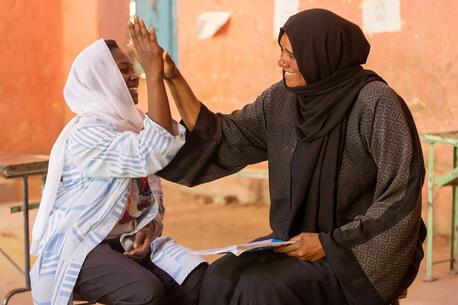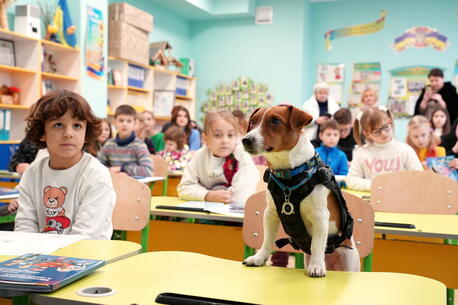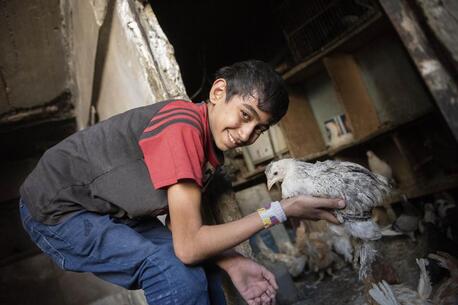
Learning to Hope and Dream Again in Syria
Mental health and psychosocial support helped Osama, a 14-year-old amputee in southern Syria, regain his inner strength after a terrible accident.
“If it weren’t for Ms. Salwa’s support during the tough days, I think I would still be staying at home, mourning the loss of my leg,” said Osama, 14, of Altal city in rural Damascus, Syria.
Last summer, Osama took a job at a wheat mill to support his family. “I was working on the grinder when, suddenly, my leg got dragged inside it,” he said. Osama was immediately taken to a nearby hospital. His injury was severe, and the doctors had to amputate his leg.
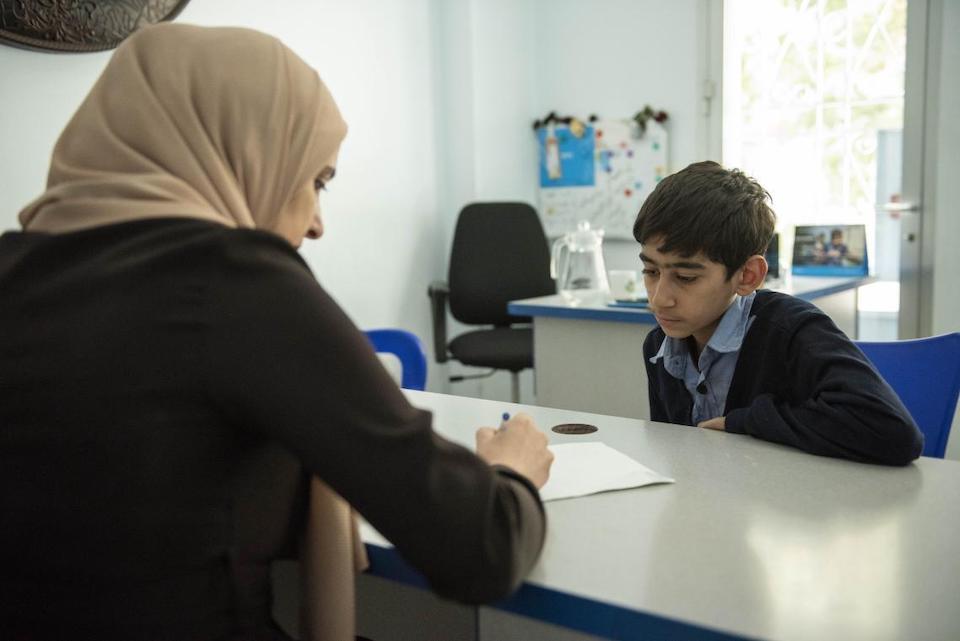
Salwa, a case manager at a UNICEF-supported child protection center in Osama’s city, visited the family at the hospital after hearing of the incident. “At first, I felt Osama didn’t accept my presence or support," Salwa said. "I realized he was traumatized and in pain, so I respected his situation. It did not make me despair."
"At first, I felt Osama didn’t accept my presence or support. I realized he was traumatized and in pain, so I respected his situation. It did not make me despair.” — Salwa, case manager
She continued to visit Osama in the hospital and at home after he was well enough to leave the hospital. His family, having lost all their savings and everything they owned during the conflict, struggled to make ends meet. Salwa referred Osama to a local charity to help him get a wheelchair and crutches. The organization also helped to cover his medical bills.
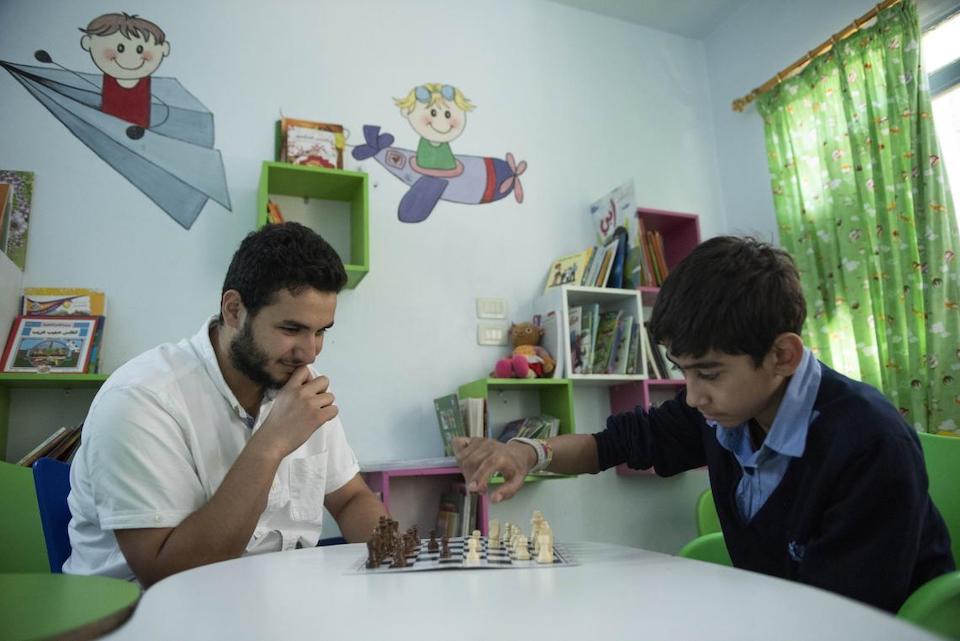
“Osama was not ready to talk about the accident, so I focused on having fun with him and playing games,” Salwa added. Osama learned how to play chess from Nour, a volunteer who accompanied Salwa on some of her visits. Nour noticed that Osama had a real talent for chess; his skills improved quickly.
Salwa encouraged Osama to participate in a chess competition organized in Altal City every year. “It was a turning point in my relationship with Osama when he came second in the competition. I started gaining his trust,” she explained.
“I was with him when he wore [his prosthetic leg] for the first time. He insisted on putting it on by himself, without any help, after seeing other children do it. It was one of the happiest moments in my life, watching him walk again." — Salwa, case manager
Osama started attending individual mental health and psychosocial support sessions with Salwa and a psychotherapist helped him to cope and overcome the trauma of the accident. At the same time, Salwa referred Osama to a public hospital where he was outfitted with with a prosthetic leg and taught him how to use it.
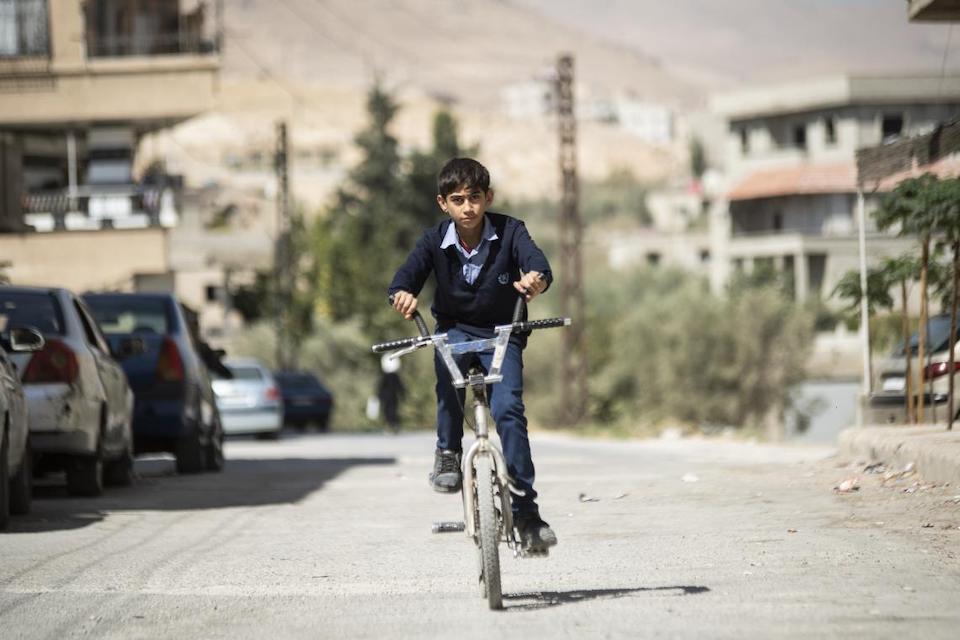
Osama arrived on his bike for the next session with his psychotherapist. Salwa was also there. “I was so proud of him. Osama only needed some support for his inner strength to come out,” she said.
"Suddenly, I felt peace in my heart. The accident was in the past and it couldn’t hurt me anymore.” — Osama, 14
Wanting to face his fears and get rid of his daily nightmares, Osama decided to go back to the mill. He had not visited it since the accident.
“When I heard the grinder, I couldn’t stand it," he said, pausing to get himself together. "I went out for a few minutes and gathered all my strength before going back in again. I looked at the machine and watched it move. I saw a piece of my clothing still stuck in there.”
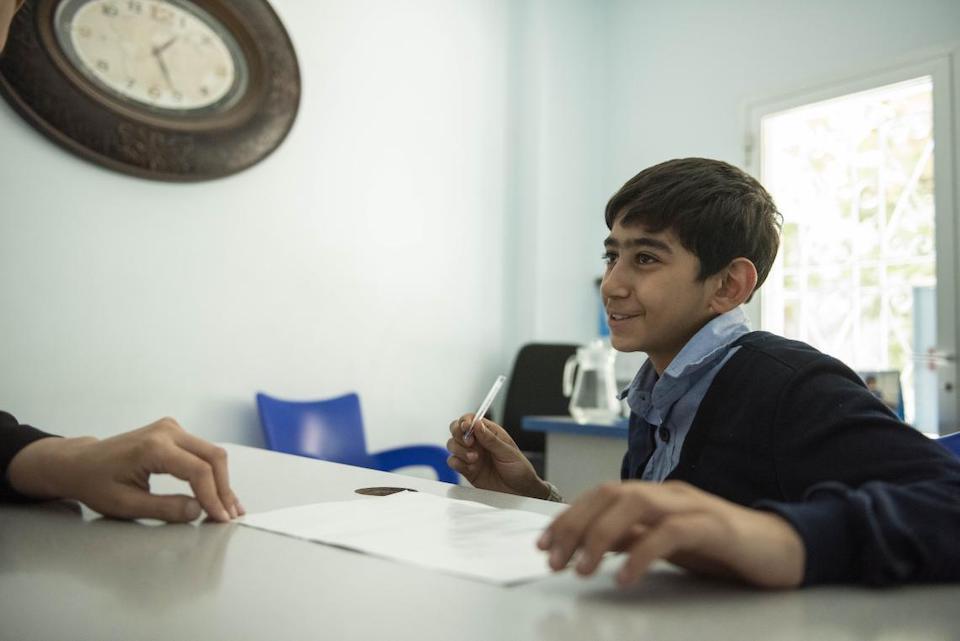
This year, with the encouragement of his family and Salwa, Osama went back to school. He had been forced to drop out for a year during his recovery. “It is a great achievement for Osama," Salwa said. "Despite all the pain he faced last year, I believe he will be a successful man in the future."
Osama dreams of becoming an architect one day and talks about wanting to design a school, a hospital or a center for children.
The Mental Health in International Development and Humanitarian Settings Act or the MINDS Act (H.R.1570 / S.767) would support the integration of mental health services in U.S. foreign assistance programming, with a particular focus on children, their families and other vulnerable populations. Urge Congress to Support Mental Health Around the Globe. Act now.
This story originally appeared on UNICEF.org
Between January and August 2023, UNICEF has reached more than 128,000 children with mental health and psychosocial support, some 18,000 children with case management and 143,000 children with psychological first aid in earthquake-affected areas in Syria. These activities were funded by the Bureau for Humanitarian Assistance (BHA/USAID); the German Federal Ministry for Economic Cooperation and Development (BMZ) through the KFW Development Bank; the Governments of Australia, Canada, Italy, Japan and New Zealand; the Global Humanitarian Thematic Fund, the Swiss Agency for Development Cooperation; Swedish International Development Cooperation Agency; the Foreign Commonwealth and Development Office; UNICEF National Committees for Canada, Denmark, Egypt, Germany, Ireland, and the United Kingdom; and United Nations Central Emergency Response Fund.

